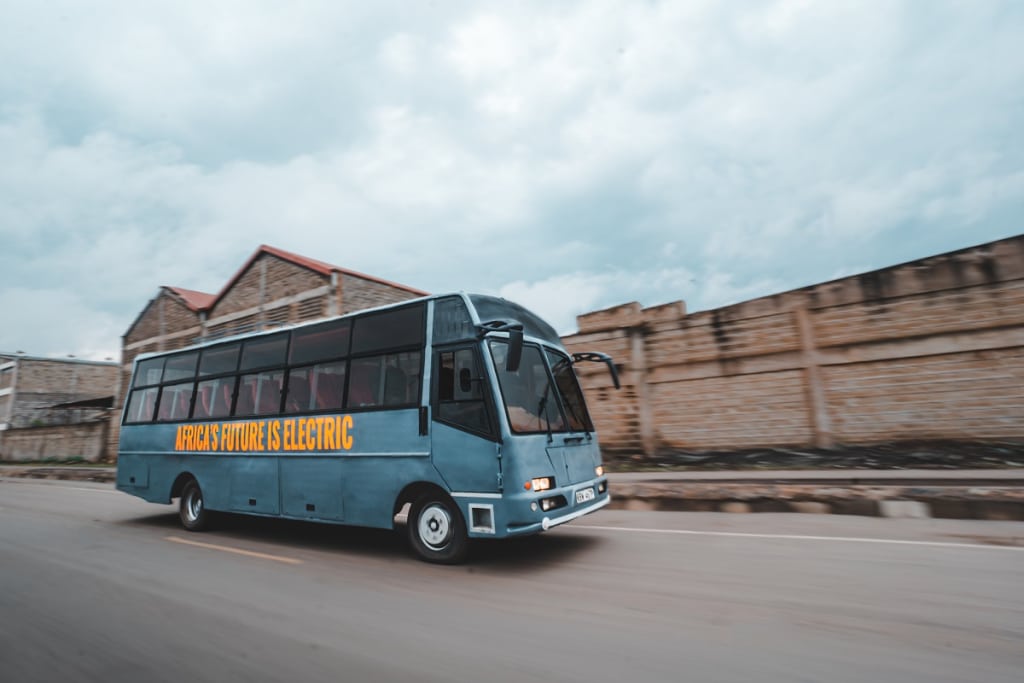On the side-lines of COP 26 in Glasgow in 2021, Opibus raised nearly $7.5 million to begin production of electric vehicles in 2022 in East Africa. Here we go. The green start-up has met its challenge by bringing to market an electric vehicle made in Kenya. The bus is designed and manufactured by local engineers, with support from other locally recruited partners.
“The deployment of the buses will initially be in the peri-urban areas around Nairobi metropolis, Opibus is banking on a bus that is entirely designed and manufactured in Kenya, with maintenance costs reduced by 80% compared to a similar diesel-powered bus,” says Dennis Wakaba, the Public Transport project coordinator at Opibus. The start-up has also announced the commercial deployment of 10 buses that will be tested in the second half of 2022.
Funding for the rollout of this new arsenal is structured with $5 million in equity and $2.5 million in additional grants. The deal was led by At One Ventures, a Silicon Valley fund, backed by Factor Ventures and Ambo Ventures, funds managed by former executives at Google and Uber, the self-driving car app.
At the same time, Opibus launched in 2017 will deploy 3,000 of its electric motorcycles, in collaboration with U.S. mobility giant Uber, with the aim of creating a sustainable ecosystem for transportation in Africa. Opibus, as a manufacturer of electric vehicles will supply the two-wheeled machines and Uber will put them on the road through its apps marketed in more than 310 cities around the world.
Creating a sustainable ecosystem for mass transportation
In Kenya, some 1.6 million registered motorcycles still run on gasoline, which causes CO2 emissions. According to a 2014 study by the Canadian Ministry of Natural Resources, burning one liter of gasoline would produce an average of 2.3 kg of CO2.
Opibus’ electric vehicles are equipped with integrated batteries. The development of this solution is in line with the Kenyan government’s efforts to reduce its CO2 emissions, which are largely responsible for climate change, by relying more and more on renewable energies.
Read also-AFRICA: Uber and Opibus to roll out 3,000 electric motorcycles by 2022
Several other companies specializing in electric mobility operate in Kenya, including Drive Electric, which, in addition to renting electric vehicles, offers installation services for charging stations. NopeaRide follows the same logic by offering electric vehicles with drivers on the transport market.
Benoit-Ivan Wansi
